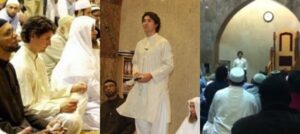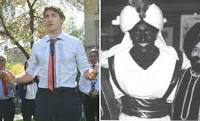
Condemning nationalism because it can lead to war is like condemning love because it can lead to murder. G.K. Chesterton
After the October election, 2015, Justin Trudeau told the New York Times:
“There is no core identity, no mainstream in Canada,” and consequently that “makes us the first post-national state.” Trudeau concluded the interview with the, “I’m excited to be on the world stage.” And continued, ”I think people are starting to see that I’m actually reasonably fit for this office.”
Let’s look at that post-national state.
Did we vote on that? Does that mean we are not loyal to our nation? There is no such thing as Canada as a nation?
Daniel Hannan, author of Inventing Freedom wrote “Patriotism is what makes us behave unselfishly. It is why we pay taxes to support strangers, why we accept election results when we voted for the loser, why we obey laws with which we disagree.”
Michael McDonald, former head of the University of B.C.’s Centre for Applied Ethics, thinks Trudeau’s belief that Canada is the world’s first “postnational state” emerges out of his concern that it’s dangerous to “affirm a dominant culture that suppresses and marginalizes those outside the mainstream.”
On one hand Trudeau claims Canada has no “core identity.” On the other hand he says the Canadian identity is quite coherent – we all share the values of “openness, respect, compassion, willingness to work hard, to be there for each other, to search for equality and justice.”
Can it be both ways?
Most Canadians don’t think so. Regardless of what Trudeau told the New York Times, a recent Angus Reid Institute poll confirmed what many Canadians judge to be common sense: 75 per cent of residents believe there is a “unique Canadian culture.”
Seems our PM might also be a tad too cavalier in his exhortation about a lack of core identity. We have a core identity based on core values in the preamble of the 1960 Canadian Bill of Rights which reads as follows:
The Parliament of Canada affirming that the Canadian Nation is founded upon principles that acknowledge the supremacy of God, the dignity and worth of the human person and the position of the family in a society of free men and free institutions; Affirming also that men and institutions remain free only when freedom is founded upon respect for moral and spiritual values and the rule of law;
And being desirous of enshrining these principles and the human rights and fundamental freedoms derived from them, in a Bill of Rights which shall reflect the respect of Parliament for its constitutional authority and which shall ensure the protection of these rights and freedoms in Canada.
In 1982 when the Canadian Constitution was repatriated from Britain the Canadian Charter of Rights and Freedoms included the statement that “Canada is founded on principles that recognize the Supremacy of God and the rules of law.”
The inclusion of the supremacy of God in the preamble of the Charter came about at the time of the patriation of the Canadian Constitution by the Liberal government of Prime Minister Pierre Elliott Trudeau in 1982, and represents the first time that God was mentioned in a Canadian constitutional text.
Pierre Trudeau, his father, wrote about the Charter in his memoirs:
“Writers and poets have always searched for the Canadian identity; almost instinctively, Canadians have tended to say that they are French Canadians or English Canadians or Ukrainian Canadians or whatever, or simply new Canadians. But what is Canada itself? With the charter in place, we can now say that Canada is a society where all people are treated equal and where they share some fundamental values based upon freedom. The search for this Canadian identity, as much as my philosophical views, had led me to insist on the Charter (emphasis mine).”
What does it mean when one references the divine in a constitution?
“A reference to the divine is commonly employed as the transcendent principle that defines the ultimate source of a nation’s bonds in order to attribute to the nation an innate and enduring character… Engagement with rights discourse demonstrates that the supremacy of God corresponds to the idea that universal rights require a foundation that transcends human affairs. Finally, the supremacy of God serves as the transcendent principle that underlies both the symbolism of civic nationalism and the theory of the state.”
Justice Addy of the Federal Court said the following in regards to the supremacy of God in the Canadian Bill of Rights: “Although the common law has always recognized the supremacy of God and, although that principle is now enshrined in the preamble of the Canadian Bill of Rights, the common law does not grant nor does the Canadian Bill of Rights give to any citizen the right to invoke his own interpretation of the will of God (emphasis mine), or of any of His precepts, as a valid motive for avoiding the duties of a citizen as they are defined and imposed by the state and it matters not whether the interpretation originates from the individual himself or from the precepts of a recognized religion.”
God represents the ethic that underpins all freedom in the West. That ethic clearly states that all people are born with equal intrinsic value, all life is sacred and we have free will. We tend not to think about free will. We should. Before the Jewish people brought the ethic into the world 3500 years, there was no such thing as free will; moral agency. It was believed that one is born into one’s destiny – no choice at all. Free will comes with responsibilities, as well. Choosing the right path, the legal path; honouring the morals and values and …principles that recognize the Supremacy of God and the rules of law.
Not all cultures believe in these God-given rights and freedoms. There are those who believe that some are more “equal” than others, like the caste system in Hinduism and dhimmitude in Islam. There are many cultures who value boys over girls and promote sex selection abortion; diametrically opposing the God given value that all people are born with equal intrinsic value.
Now read the path our Prime Minster has taken. Has he abrogated the Constitution? If so, he must be removed.
Trudeau has stated clearly that Islam is compatible with the values expressed in the Canadian Bill of Rights and the Charter of Rights and Freedoms. Yet, Islamic leaders say otherwise.
According to ICNA Canada’s online syllabus:
“Islam is not incompatible with Western secular democracy”.
“The political system of Islam is totally incompatible with western democracy.
“The concept of government party and the opposition is alien to Islam.
“All belong to one Ummah with only one goal and pursue the same aims and objects of Islamic guidelines!”
What of Islam’s views on homosexuality and women’s rights and Jews? Islam teaches that gay people are to be hanged, women are second class citizens with few rights, and one must fight the Jews.
“It is narrated from the hadith of Abu Hurayrah that the Messenger of Allah (blessings and peace of Allah be upon him) said: ‘The Hour will not begin until the Muslims fight the Jews and the Muslims will kill them.’”
Yet our PM continues to defend this Islamic ethic:
(November 24, 2015): “Canadians are quick to point out that ISIS is wrong, that Islam is not incompatible with the Western secular democracy, a free place like Canada.”
(January 31, 2016): “But on the other hand, we need to make sure that we’re working with communities like the Muslim community for example to demonstrate that Islam is not incompatible with free and open Western societies.”
From March 2018
Are these views compatible? That Trudeau says “yes” seems to indicate that he is abrogating the Charter of Rights and Freedoms. Single-handedly.
And then there is his behaviour.
Our Prime Minister has been involved in unethical behaviour. When confronted with a photograph of him in black face, Trudeau said it had prompted him to “be even more committed to standing with this community and fighting every day against the barriers and discrimination that are so invisible to so many people.”
In 2019 then Justice Minister Jody Wilson-Raybould sat before the House Justice Committee for hours, testifying that she faced high-level “veiled threats” and political interference in the criminal prosecution of SNC-Lavalin, a major company in Quebec. This left Prime Minister Justin Trudeau facing calls to resign.
The Prime Minister portrays himself as a real feminist. He ran for office on a platform of diversity with more women in power. Yet, he demoted Wilson-Raybould, for doing her job, and then she resigned from cabinet.
It came out during the #MeToo movement that Prime Minister Justin Trudeau had been accused of sexual harassment. He admitted he had apologized in 2000 to a local female reporter for inappropriately “handling” her but insisted he did not feel he had done anything wrong.
“I’ve been reflecting very carefully on what I remember from that incident almost 20 years ago and, again, I feel, I am confident, I did not act inappropriately,”
Trudeau was also investigated by the Conflict of Interest and Ethics Commissioner Mary Dawson who found in December 2017 that Trudeau violated ethics rules by accepting the trip to the Aga Khan’s island at a time when the Aga Khan was discussing funding for projects with Trudeau’s government.
Then there is China. In 2013, Trudeau said he had a “level of admiration” for China. Why, he was asked, “Because their basic dictatorship is allowing them to actually turn their economy around on a dime and say ‘we need to go green fastest…we need to start investing in solar.’”
It has been suggested that he is afraid of China. Under Trudeau, trade with China has been a top priority despite the fact that human rights are more important to Canadians than trade relations. Canadians Michael Kovrig and Michael Spavor marked their 500th day of imprisonment in China. They were arrested in response to Canada’s arrest of Huawei Technologies Co. Ltd. executive Meng Wanzhou. What has the Prime Minister done to free them? At the same time Canada as one of the five leading members in Five Eyes, currently risks losing its membership in the intelligence alliance due to a national security controversy involving Huawei, the Chinese telecommunications company. Huawei’s admission into Canada’s 5G network can negatively impact Canada’s Five Eyes membership.
In February, aware of the Covid19 Chinese Virus and the need for this equipment, Trudeau sent 16 tonnes of personal protective equipment to China. And now Canada’s military is partnering with China on a vaccine for Covid19. Is this part of his desire to court China in the hope of getting a UN Security Council seat?
This is the path our Prime Minister is taking. Is he honouring this oath?
When a Member swears or solemnly affirms allegiance to the Queen as Sovereign of Canada, he or she is also swearing or solemnly affirming allegiance to the institutions the Queen represents, including the concept of democracy.Thus, a Member is making a pledge to conduct him-or herself in the best interests of the country. The oath or solemn affirmation reminds a Member of the serious obligations and responsibilities he or she is assuming.
Has the Prime Minister of Canada, Justin Trudeau, conducted himself in the best interests of he country? Has he broken his oath to uphold the Constitution?
From the Ethics of the Fathers: “Rabbi Tarfon used to say, it is not incumbent upon you to complete the task, but you are not exempt from undertaking it.”


